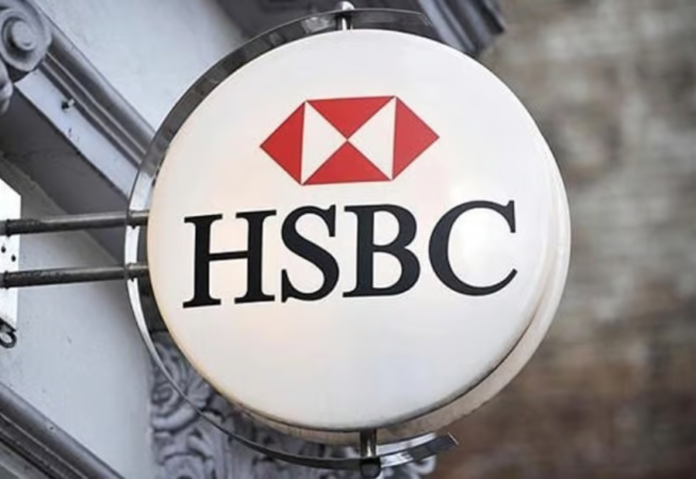According to sources, Europe’s largest bank, HSBC, may transfer its focus on digital transformation and innovation, which is presently under the direction of CEO Noel Quinn, away from his replacement.
HSBC is considering financial incentives and reallocating important projects to keep executives who don’t make the cut for the top post as the bank gets ready to pick its third CEO in nine years, according to sources. According to sources, Europe’s largest bank may transfer its focus on digital transformation and innovation, which is presently under the direction of CEO Noel Quinn, away from his replacement. According to two further sources with knowledge of the situation, HSBC is anticipated to select its next chief executive from a pool of internal candidates, and an announcement could be made as soon as this month.
Following a series of internal restructurings, the bank is eager to hold onto top staff as it navigates problems such as the ongoing trade spat between Britain and China, a lackluster performance in its share price, and other issues. Three investors, comprising two of HSBC’s twenty biggest, expressed their apprehension that the nomination of the CEO would trigger other changes in management. For instance, if Georges Elhedery were chosen to be the CEO, the CFO position would be held by a different person in fewer than three years. One of the investors remarked, “Promotions do leave gaps elsewhere, and that merry-go-round can be problematic if not handled well.”
According to HSBC’s remuneration report, the reallocated projects represent the majority of the weighting in Quinn’s key performance measures, which means they might come with hefty pay incentives. Quinn’s overall compensation package increased to 10 million pounds ($12.8 million) in 2023, double what it was the year before. “HSBC is searching widely and thoroughly for its next group chief executive. This procedure will take both external and internal applicants into account. When necessary, we will inform the market, as a representative stated. According to reports, the nominations committee is anticipated to select from a group of executives that comprises Investment Bank Chief Greg Guyett, CEO of the Investment Bank, Nuno Matos, CEO of the Wealth Business, and CEO of Europe, Colin Bell.
Additionally, by 2026, Chairman Mark Tucker is expected to retire. Octavio Marenzi, CEO of consultancy firm Opimas, stated, “It certainly is unusual for a large bank like HSBC to go through three major changes in such rapid succession.” The modifications come after Quinn reorganized the bank, cutting positions in high management and eliminating underperforming divisions in countries like the US, Canada, and France. Reviving the bank’s shares will be a top priority for his replacement. HSBC’s shares have only increased by 4% since Quinn assumed the position in August 2019. This is in contrast to a 54% increase in the European banking sector index and an almost 14% increase in the UK sector index.
HSBC posted a $30 billion record annual profit in 2023, but problems still exist. Its sales have increased as a result of rising geopolitical tensions between China and Britain, which combined account for almost half of its profit. It also anticipates a decline in global central bank interest rates. As per the business rules, one investor chose not to disclose their identity and commented on CEO selection processes. “There are not many candidates to lead the company who will have the two essential skills of managing both politics and people,” the second investor stated. People who were previously passed up for the position have occasionally left the bank.
An ex-senior executive indicated that Charlie Nunn, the previous head of the wealth business who was considered a potential CEO before Quinn was appointed, departed in November 2020 to take a position as CEO at Lloyds. Nunn’s representative declined to respond. The process, according to the former CEO, also makes people who are not chosen into possible targets for headhunters by showcasing the bank’s best talent. The amount of the discussed financial incentives could not be independently disclosed. A third stakeholder in HSBC stated, “Pay increases for better retention under the C-suite would be a good thing.”
“It is really important to ensure some stability and continuity for the bank, given the CEO transition.” The biggest investor in HSBC, Ping An Asset Management, declined to comment. Internal promotions can be difficult, according to Kyle Samuels, CEO of Creative Talent Endeavors, a company that counsels banks and venture capital firms on how to keep outstanding talent. “In order to retain people who were not chosen, the chairman must be open and honest in communicating the decision and provide substantial new jobs or projects. “Quick acknowledgment and incentives can also be beneficial,” added Samuels, who is not presently offering process advice to HSBC. However, other observers stated that the bank might be able to maintain its course with the nomination of an insider.
Although it is uncommon for a bank to replace its chairman, CEO, and CFO in quick succession, HSBC will benefit from some consistency if the CFO takes on the role of CEO, according to Benjamin Toms of RBC Capital Markets.
Do Follow: CIO News LinkedIn Account | CIO News Facebook | CIO News Youtube | CIO News Twitter
About us:
CIO News is the premier platform dedicated to delivering the latest news, updates, and insights from the CIO industry. As a trusted source in the technology and IT sector, we provide a comprehensive resource for executives and professionals seeking to stay informed and ahead of the curve. With a focus on cutting-edge developments and trends, CIO News serves as your go-to destination for staying abreast of the rapidly evolving landscape of technology and IT. Founded in June 2020, CIO News has rapidly evolved with ambitious growth plans to expand globally, targeting markets in the Middle East & Africa, ASEAN, USA, and the UK.
CIO News is a proprietary of Mercadeo Multiventures Pvt Ltd.






